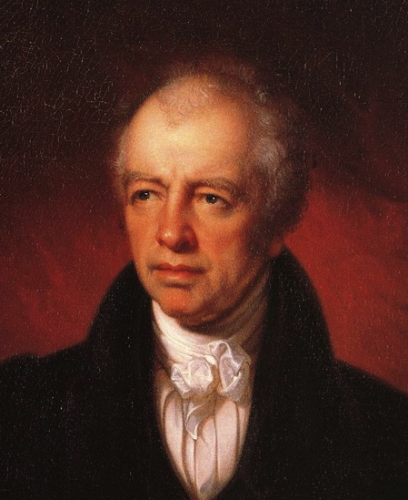Happily for this country, we received our jurisprudence from England in its highest vigour, and in its most cultivated state. The leading statesmen in the colonies, and especially the members of the bar, had the sagacity to perceive, and the courage and patriotism to assert, the indefeasible title of their countrymen to all the securities and blessings of the English common law. They had inherited its free and liberal spirit, and in almost every colony there were individual lawyers, equal in character, learning, and eloquence, to their brethren in the courts of the parent state. They were lawyers of the old school, who actually led on the American revolution. They were the daring patriots and intelligent statesmen who roused their countrymen to the duty of insisting on the exclusive right of self-taxation, and to all the other liberties and privileges of English subjects, resting on the basis of the common law, and the sacred stipulations of chartered contracts. It was the lawyers that guided the deliberations of the congress of 1774, and penned its admirable addresses, and stimulated their associates to unite with them in pouring forth their grievances and their exhausted patience, and their determined purpose, in the monumental act of independence.
An Address Delivered Before the Law Association of the City of New York, October 1, 1836, by The Hon. James Kent.
We had this to say about James Kent in America 3.0:
We ended up with a common American legal culture for reasons beyond the Constitution. In the early years of the country there was popular animosity toward anything English and some resistance to relying on the Common Law and English precedent. American lawyers and judges rejected this notion and created an American style of law that was continuous with England’s, though not the same. They managed to keep this system roughly consistent across the entire country by relying on legal treatises that were considered authoritative. The most important example was James Kent’s Commentaries on American Law, which went through many editions.
Chancellor Kent was one of the most important lawyers and legal thinkers in the history of the Anglosphere. America is an enormous free trade area where business can be transacted efficiently over 3.7 million square miles among 310 million, or more, Americans. We have a common legal culture which makes this possible in significant part due to the work of Chancellor Kent.
The lawyers never get any credit, though Ronald Coase appreciated what they contribute. The quote above shows that James Kent not only made a quiet, almost invisible contribution to founding our nation. He also understood and appreciated what the lawyers of the Founding generation gave us, precisely because they were thinking as lawyers and made a legal case for our independence, and preserved the legal culture we had inherited from Britain, the common law — though of course with American characteristics.

“They were lawyers of the old school, who actually led on the American revolution. They were the daring patriots and intelligent statesmen”
At the risk of sounding sarcastic, we could use a few of those about now.
We have plenty of them now.
Here are some.
You don’t sound sarcastic, you sound like you are not aware of some important facts.
I’ve been supporting these folks, and would encourage others to do so as well:
http://www.pacificlegal.org/
It’s a small thing, but it helps. And the more support they get, the more they are capable of fighting the behemoth. And they’ve had some remarkable successes, including recently defeating the EPA in the Supreme Court. It’s a rearguard action though. The monster is growing and metastasizing faster than we can cut off its heads.
That said, I was referring to people in government who would act as “daring patriots and intelligent statesmen”. Those we could use. There’s something wrong with our nomination process, or possibly it’s the life crushing attacks by the leftist media, that’s keeping decent, accomplished people out of high office.
Blackstone was important. I suspect that if you checked the saddle bags of your basic circui judge in mid 1800s you’d fing Blackstone more often than Kent.
Grey Eagle, Blackstone was standard, and Kent was as well. Kent came after independence and had a major impact.
I just found this:
“We have a pretty good idea of some of the law books that Lincoln read in New Salem. Lincoln undoubtedly read William Blackstone’s Commentaries on English Law, and he probably also read Joseph Story’s Equity Jurisprudence, Chitty’s Pleadings,and Kent’s Commentaries on American Law. These were the canonical works for antebellum lawyers.”
From Abraham Lincoln and the Rule of Law Books, Mark A. Steiner, Abraham Lincoln and the Rule of Law Books, Volume 93, Issue 4, Summer 2010.
Blackstone, Story and Kent were all standard. Chitty I don’t know, but I’ll take this author’s word for it.
Sigh – I am working up my next novel – which turns out to be the rebooting of the Lone Ranger franchise that I posted about a couple of weeks ago. I will buy Blackstone’s Commentaries (the seem to be available on Kindle for about $3) and skim them over, in an attempt to get into the skull of a very young frontier lawyer. I will look into the other tomes that Lex listed.
Think of this as the education of an English major … at least there is no math involved.
It is well that there are noble men in the Bar still, but this is no salvation.